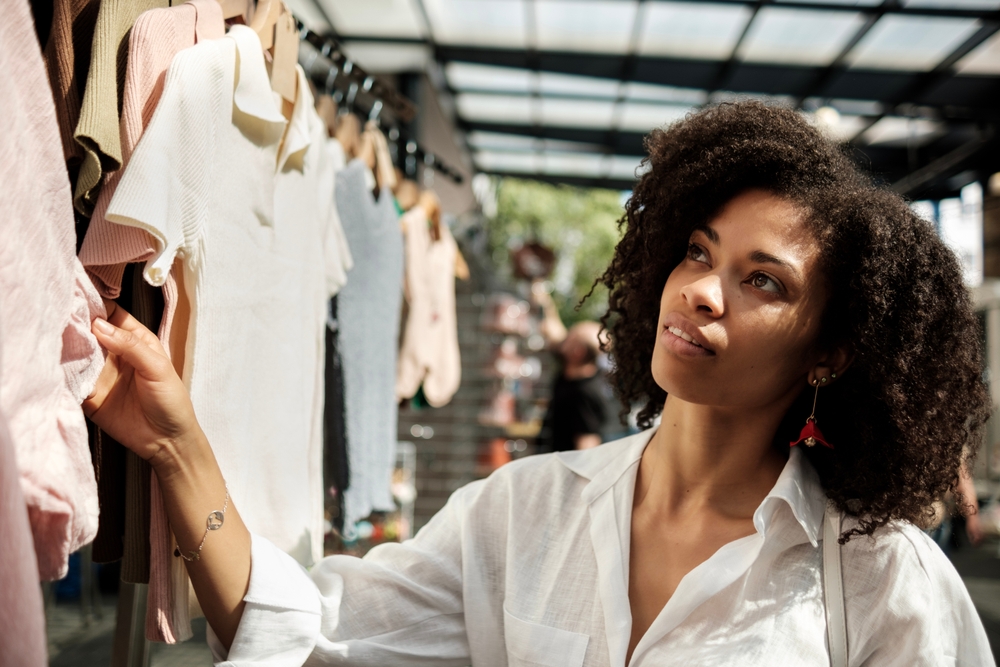It’s no secret the apparel industry has long assumed Black fashion and rarely credits it as the source of inspiration. Dapper Dan, for instance, spent decades orchestrating a style genre that was highly unique to the business and beyond, but it wasn’t until Gucci was lambasted for stealing his designs that he was asked to collaborate with their creative team.
The idea that luxury business owners and consumers are only white and not Black is a glaring illustration of what happens when our community—despite its uncanny creativity and endless contributions—is viewed through a restricted prism: the industry will see and treat us only in that way.
The popularity of vintage designer shopping is yet another case of how, contrary to popular belief, it is an enduring trend of which Black culture is most central. Set to become a whopping $77 billion business by 2025, per Axios, the reworking and upcycling of clothing was born out of the Jim Crow laws when Black shoppers weren’t allowed access to most department stores and fashion spaces. It remains an often-ignored part of fashion, one in a booming industry that, because of racism, has a long history of thrifting out of necessity.
Today, the widespread presence of the thrifting culture continues to be driven and championed by Black people. Virgil Abloh’s designs for Off-White, Travis Scott’s vintage Nike low dunks and Telfar’s now iconic tote bag are only a few of the innumerable examples of how creatives of color constantly modify sartorial perspectives in ways that bring about new narratives and trends.
The same cast of mind applies to Black vintage business owners, too.
Whether they’ve established a curation of chic ‘70’s suede wrap dresses or cool 90’s graphic tees, these retailers give their take on the chicest styles from some of the most impactful fashion moments of varying decades. Although their collections reveal an undeniable, nostalgic affection for the past, they impeccably remain on trend while reducing environmental waste and preserving much-needed sustainability.
So, keep scrolling…and see five revolutionary Black-owned vintage shops with rare finds that will help you get your vintage fix, no matter your personal style.
BLK MKT Vintage
A treasure trove of memorabilia – particularly from the ‘70s and ‘80s, Brooklyn’s own BLK MKT Vintage is the ideal shopping destination for anyone who wants to participate in the conversation surrounding Black history.
Thrilling
An online marketplace for small American vintage shops, founded by Shilla Kim-Parker in 2018, Thrilling is an inclusive haven for vintage fashion that works with a huge range of BIPOC-owned businesses and their vast size ranges.
Sami Miro Vintage
Famous for its reconstructed vintage clothing among Hollywood’s young elite, the brand’s innovative use of stitching, swatches and metal embellishment gives each garment fly streetwear vibes.
Washington Ave
With a skillfully curated collection of bright, spirited clothing inspired by the ‘80s, Louisiana-based Washington Ave reworks them by injecting a hint of Southern funk into their modern interpretations.
Retro Rhapsody
@retrorhapsody fall arrivals and vintage leather
♬ Superstar – Beatrich
Miami-based shop Retro Rhapsody specializes in collecting timeless, feminine designer finds from classic labels like Max Mara and Christian Dior.


